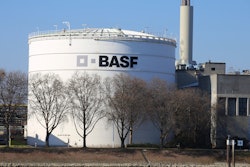What do you get when you cross a tire industry executive with a recycling professional and a finance guy? In the case of Lehigh Technologies, you get a new specialty chemicals company that gives old tires a new life.
The idea started in 2003 with that trifecta of professionals who wanted to harness the potential of end-of-life tires. Around 300 million tires are discarded in the U.S. each year, and almost one billion are thrown away worldwide.
After securing the right technology and finances, it was off to the races in 2007 and since then, Lehigh has been speeding along as one of the world’s top producers of micronized rubber powders (MRP).
What they do: Using proprietary cryogenic turbo mill technology that Lehigh’s CEO, Alan Barton, says was developed by a small German company in the milling industry, Lehigh grinds old tires into MRP. The company’s two main product lines — MicroDyne and PolyDyne — come in a range of particle sizes and can be used as a replacement for oil-based materials.
The rubber powder is designed for an array of applications such as other rubber products, plastics, asphalt and construction coatings.
Lehigh boasts that its products perform just as well or better than oil-based technologies and because they’re made from recycled materials, they have a “green” edge too.
Locale: All of Lehigh’s manufacturing is in Atlanta, but the company is in the process of planning another facility in Spain.
Employees: Lehigh employees about 80 people, most of whom work in manufacturing as well as R&D.
Competitors: According to Barton, Lehigh is the biggest U.S. player in the MRP space, but he added that they are “just starting to understand what’s going on in China.”
Sales: While the company won’t release its sales numbers, Barton says they have been growing about 20 percent each year since 2007. Barton added that six of the 10 top tire companies are regular customers.
What makes Lehigh successful: Barton says that what has set Lehigh apart isn’t just its products — it’s that the company doesn’t operate like a recycling business.
“You have to have the chemical industry mindset,” Barton says. “Our management team is comprised of refugees from the chemicals industry. We know how to bring new products to the marketplace and develop end uses for the technology.”
Barton, who got his degree in organic chemistry and spent decades working at Rohm and Haas, says that science knowledge is also crucial for companies working with recycled materials.
“You have to do your own R&D and have data to show why the product is good,” Barton says. “A lot of entrepreneurial startups fail because they don’t have hands on experience in the science and don’t know how to make it happen,” he says.
“If you look at our website you see that we’re in multiple markets and we’ve found different avenues to exploit,” he adds. “That’s been critical for us.”
Check out Lehigh’s website for a great video that shows how their technology turns old tires into gold.























